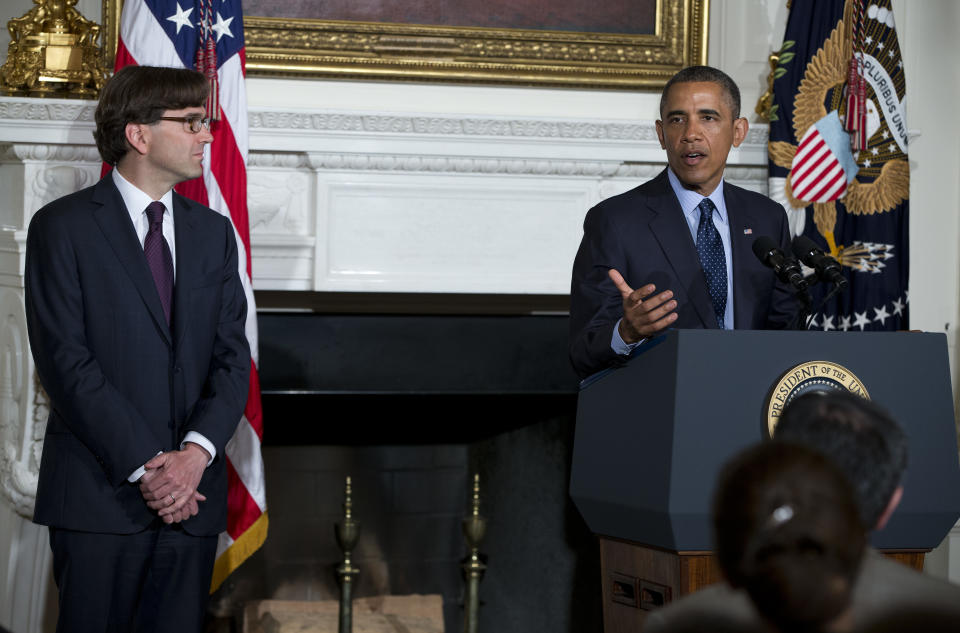Obama's former economic adviser reveals the biggest omission in Trump's coronavirus relief plans
Despite an agreement reached Tuesday in Washington D.C. to restore funding to the Paycheck Protection Program (PPP), there is still a glaring omission in the federal government’s response that has one former economic adviser to President Obama particularly worried.
That same worry is shared by governors around the country who have begun advocating for their respective states, highlighting that budget shortfalls in the multibillion dollar range could lead to disastrous spending cuts at the worst possible time. It’s the same that President Obama’s former Council of Economic Advisers Chair Jason Furman saw play out firsthand during the recovery from the Great Recession. Now, it’s also a mistake he’s imploring the government to avoid repeating now.
“The biggest omission in the federal response so far is assistance to states and assistance to localities,” Furman, now an economics professor at Harvard, explained on Yahoo FInance’s YFi PM. “The basic economic logic of all of the efforts being made so far is that the one entity in the economy that can borrow and borrow at low rates in an unlimited fashion is the federal government.”

However, noticeably absent from the $2.2 trillion Coronavirus Aid, Relief, and Economic Security (CARES) Act passed by Congress was economic relief to states suffering incredible drops to revenue in the form of sales taxes and other levies as more businesses shut down due to the coronavirus crisis. Beyond $150 billion in state funding for efforts tied specifically to the crisis itself there wasn’t much to relieve the unbalanced budgets many states now face. Officials in New York state, for example, are projecting a 2021 shortfall as large as $10 billion while Illinois could see about half that at an estimated budget gap of $4.6 billion. New York Gov. Andrew Cuomo warned Monday that could result in about a 20% cut to funding for public schools and local hospitals.
“States and localities by their own constitutional rules can't run deficits,” Furman said. “They have to balance their budget. Their revenue is plunging, so they’re going to have to cut their spending, too. The CARES Act reimbursed some of their expenses, but did nothing to fill the huge hole they're in.”
Call for financial support
Furman earlier estimated that the same spending cuts at the state level to balance budgets following the 2008 Great Recession likely shaved about 0.5% in GDP a year during that recovery. “That's something from a macroeconomic perspective we want to avoid now,” he said.
For their part, local officials are intensifying their calls for financial support. A recent survey from the National League of Cities revealed nearly 90% of leaders in cities and towns in the U.S. signaled they expect a revenue shortfall. The National Governors Association has now asked for $500 billion and city and county groups are seeking a total of $250 billion. In a tweet Tuesday, President Trump said he’s looking at prioritizing that in the next wave of fiscal support.
“After I sign this Bill, we will begin discussions on the next Legislative Initiative with fiscal relief....to State/Local Governments for lost revenues from COVID 19, much needed Infrastructure Investments for Bridges, Tunnels, Broadband, Tax Incentives for Restaurants, Entertainment, Sports, and Payroll Tax Cuts to increase Economic Growth,” the president tweeted.
....to State/Local Governments for lost revenues from COVID 19, much needed Infrastructure Investments for Bridges, Tunnels, Broadband, Tax Incentives for Restaurants, Entertainment, Sports, and Payroll Tax Cuts to increase Economic Growth.
— Donald J. Trump (@realDonaldTrump) April 21, 2020
Furman, who was part of Obama’s team that implemented the more than $800 billion American Recovery and Reinvestment Act of 2009 during that recovery, applauded the move to focus on infrastructure spending.
“I was in favor of infrastructure last year and I'm still in favor of infrastructure. It is what we need for the country to grow in the next five years,” he said.
Zack Guzman is the host of YFi PM as well as a senior writer and on-air reporter covering entrepreneurship, cannabis, startups, and breaking news at Yahoo Finance. Follow him on Twitter @zGuz.
Read the latest financial and business news from Yahoo Finance
Read more:
Small US towns are neglected from coronavirus relief and it's a 'slap in the face': Georgia mayor
Coronavirus job losses hit these 10 states the hardest
The coronavirus just doubled the risk of mass bankruptcies
Follow Yahoo Finance on Twitter, Facebook, Instagram, Flipboard, SmartNews, LinkedIn, YouTube, and reddit.

 Yahoo Finance
Yahoo Finance